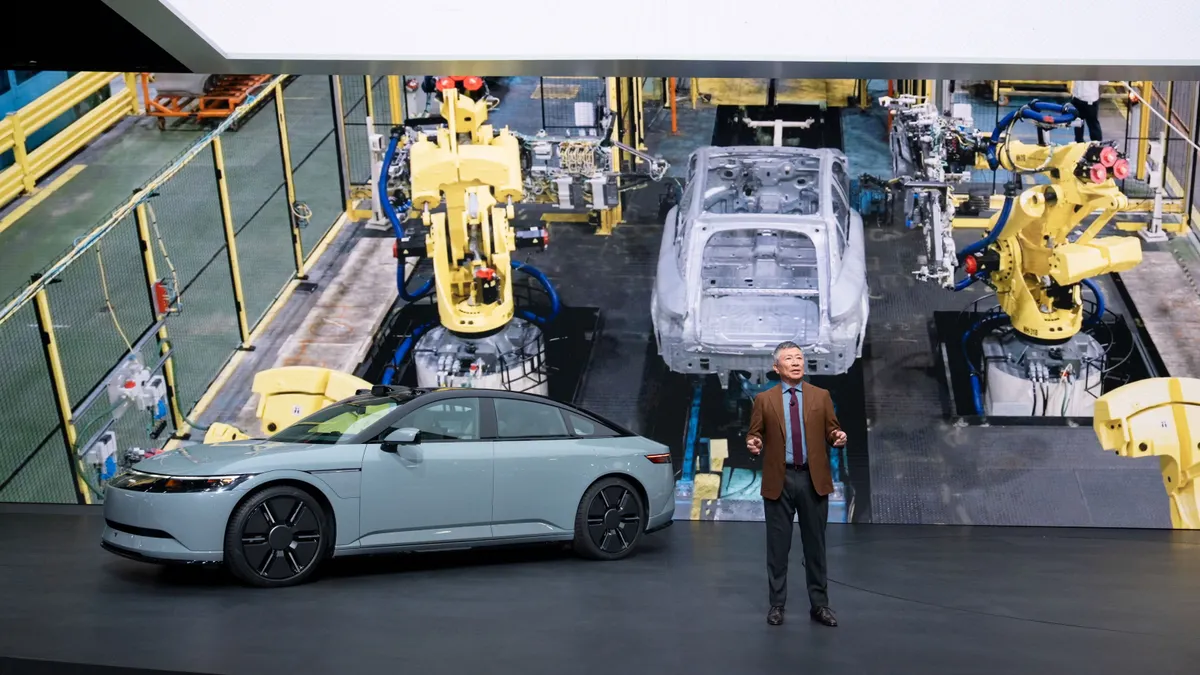Editor's note: This story is part of the WardsAuto digital archive, which may include content that was first published in print, or in different web layouts.
The Australian auto industry plunges deeper into crisis with GM Holden engine-plant workers staging their second strike in a week and a top General Motors official refusing an invitation to meet with a senior federal cabinet minister.
GM Holden also is not allowing company union representatives to travel to Canberra with a delegation of industry workers and union executives for talks with government officials about more aid for Australia’s auto industry.
The refusal to allow workers to take part in industry talks is a first, Australian Manufacturing Workers Union (AMWU) South Australian State Secretary John Camillo tells The Age newspaper in Melbourne.
“Holden indicated that it would not release any representatives to go to Canberra,” he says. “They said they didn't want to play any politics and didn't want to release them. As far as I know, they have never done that before. I gave them plenty of notice.”
It is the latest snub from GM Holden after it rejected a request by Industry Minister Ian Macfarlane to meet with Stefan Jacoby, parent GM's head of operations in the Asia-Pacific region, Europe, Africa and the Middle East. Jacoby will decide the fate of the GM Holden plant after the parent company warned it may be closed.
A statement from GM Holden says Jacoby was in Australia for meetings at GM Holden's headquarters in Melbourne “for a very quick visit to review Holden's current and future product lineup and to discuss strategic issues with the management team.”
A GM Holden spokesman tells the Australian Financial Review newspaper Jacoby’s agenda did not allow time for meetings with government representatives.
The Geelong Advertiser reports the executive’s 48-hour visit also included a trip to GM Holden’s Lang Lang proving ground, 60 miles (100 km) southeast of Melbourne, where he inspected the auto maker’s model range and met with engineers.
AMWU executive Camillo also was unsuccessful when he requested a meeting with Jacoby.
Macfarlane tells the newspaper the refusal to meet shows a lack of sensitivity toward the state of the industry and adds to the difficulties between the automaker and the new government of Prime Minister Tony Abbott.
Abbott recently said it was an act of bad faith for GM to decide in October it would shift GM Holden Chairman and Managing Director Mike Devereux to Shanghai at year’s end rather than keep him in Australia, where he has been leading the company's negotiations with the Abbott government.
“It displays a lack of sensitivity by GM on the importance of this issue to the federal government and to Australia and to South Australia,” Macfarlane tells the newspaper.
In an unusual move, GM has not announced a replacement for Devereux, who has been promoted to a role in GM's international operations and reports to Jacoby.
The GM Holden actions are raising heightened expectations it will shutter its manufacturing operation in 2016 when its present models reach the end of their lifecycle.
The auto maker reportedly is asking for A$500 million ($470.2 million) in government funding to continue with its plan to build two new car models from 2016.
Ford has announced it is ending local production in 2016, and analysts believe if GM Holden halts production, the costs of being the sole local auto manufacturer will force Toyota to do the same.
The GM Holden engine plant strikes are over forced layoffs. As with the walkout last week, the new stoppage will last two days. Workers are due to return Wednesday, when they vote on whether to strike again.
The plant builds engines for GM Holden’s vehicle-assembly plant, and the workers say the impact of the walkouts will be felt this week.
The Australian Associated Press reports the walkout began after only 70 workers volunteered to take a voluntary redundancy, which means the auto maker will fire 30 to meet its goal of eliminating 100 jobs.
The union contract does not dictate the payout terms for those sacked. Media reports say under a plan proposed by the company, payments for the laid-off workers would be less than those who left voluntarily.
The new federal government has ordered a review into the industry by the Productivity Commission before committing any more funding. GM wants an answer on funding before Christmas, when it will decide about its future in Australia.
AMWU National Secretary Paul Bastian says the Canberra meeting was to tell government representatives and members of parliament from both sides of the aisle that certainty is needed now about government support for the auto industry.
The AMWU is running an online petition urging the government to take immediate action and support GM Holden in continuing to make cars in Australia.
Bastian says the country’s auto-manufacturing industry is at a crisis point, with GM Holden unable to make future investment decisions and Toyota unlikely to stay if Holden goes.
“If we lose Holden, then Toyota is likely to quickly follow, with devastating effects for the network of smaller businesses that supply them,” Bastian says in a statement. “Losing the auto industry would put 200,000 jobs at risk and punch a A$21.5 billion ($20.2 billion) hole in Australia’s economy. If we lose the car industry, what will replace those jobs?
“Car companies need certainty of government co-investment to stay in Australia. Otherwise the company will simply shift its investment to countries that appreciate the importance of the auto industry.”
GM Holden says it sold 10,528 light vehicles in October for an 11.4% market share, with the locally built Commodore up 35% from year-ago to 3,315 units, making Holden the second-best selling brand in Australia for the month behind Toyota (18,129).



















